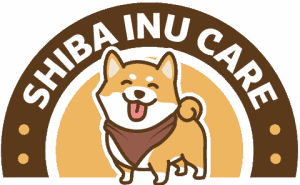This post contains affiliate links.
Shiba Inus are one of the most popular dog breeds worldwide, especially known for their adorable looks and strong personalities. You might recognize them as the face of the popular internet meme, “Doge,” but there is so much more to learn about these captivating canines. As you explore the world of Shiba Inus, you’ll discover their fascinating history, unique traits, and endearing temperament.
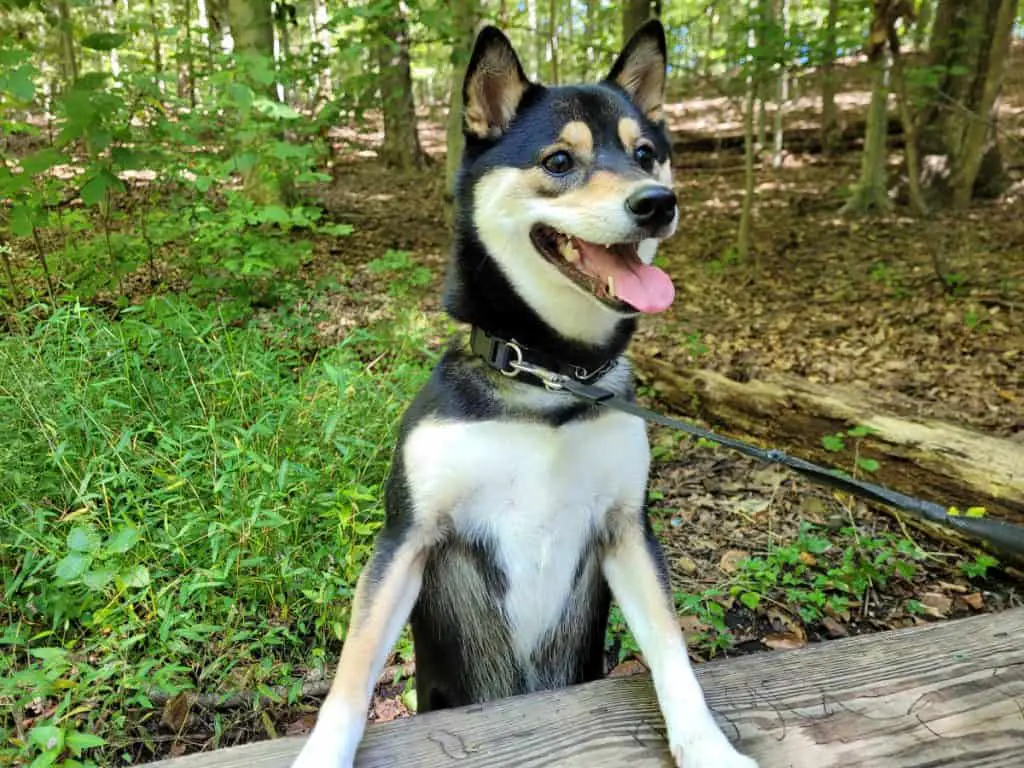
History and Origin
Shiba Inus, one of the most popular dog breeds, originated in Japan. As you might already know, they have a long and fascinating history dating back to ancient times. Initially, they were bred for hunting purposes, so their agility and keen senses are a testament to their roots.
During World War II, Shiba Inus faced the brink of extinction. With many resources going towards the war effort, these adorable canines were greatly affected. Luckily, after the war, dedicated breeders stepped up to save them. They managed to bring these dogs back from the endangered list, and now they’re thriving!
Shiba Inus are officially recognized as a Japanese national treasure. They’ve become synonymous with the country and its culture. In fact, they’re so beloved that you’ll often see them featured in various aspects of Japanese art and tradition.
In recent years, Shiba Inus have gained worldwide popularity. Dog lovers all around the globe appreciate their unique personality, charming looks, and intelligence. And if you’re a fan of internet memes, you won’t be surprised to hear that the famous “Doge” meme features a Shiba Inu.
So, now you know a bit more about the rich history and origin of Shiba Inus!
Physical Characteristics
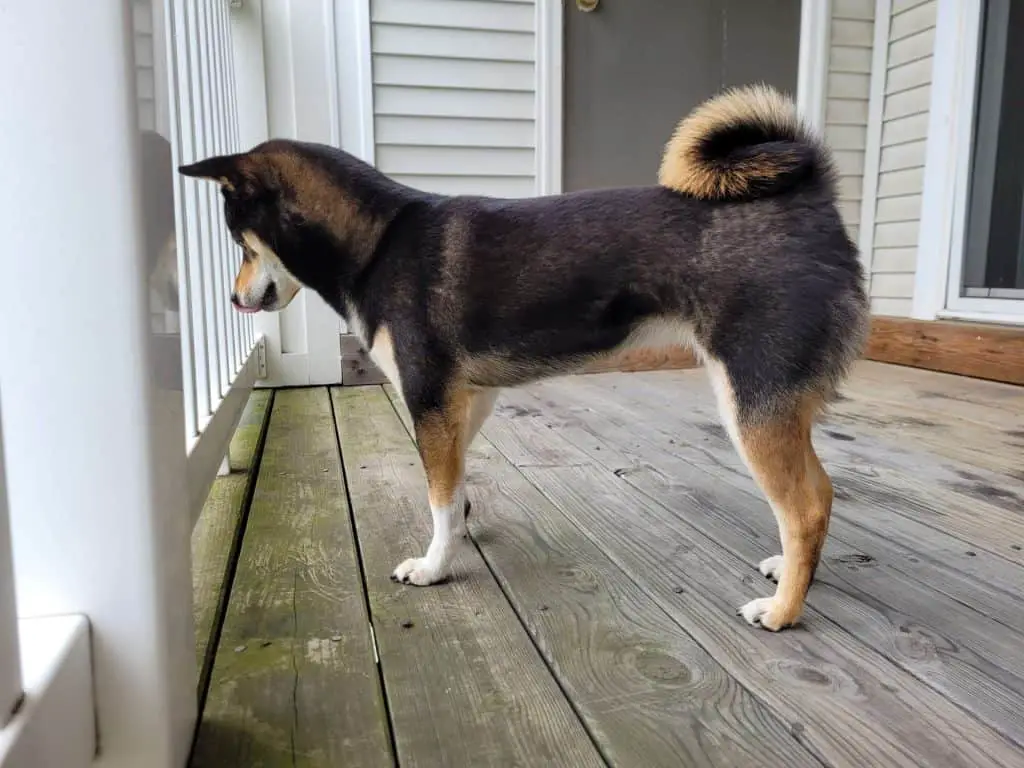
Size and Weight
You might find Shiba Inus to be a relatively smaller breed, but they pack a punch with their well-proportioned bodies. An adult Shiba male typically stands 14.5-16.5 inches tall, while females are around 13.5-15.5 inches.
Shiba males generally weigh between 18-24 pounds, and the females range between 15-20 pounds. The difference in size and weight between the sexes is not too significant, so either would make a great addition to your home!
Coat and Color
A Shiba Inu’s coat is something to admire. It’s a plush double coat, with a soft and thick undercoat, and a stiff, straight outer coat. This feature keeps them comfortable in various weather conditions, with that said, they aren’t too fond of hot weather.
Apart from being cozy, their coats display stunning colors like red, black and tan, and sesame. You’ll notice that Shiba Inus often have a unique trait called “urajiro” which is a lighter, cream-colored fur accent on their cheeks, throat, chest, and belly.
Distinctive Features
Their expression is one of the most captivating things about Shiba Inus. Their triangular, erect ears atop their small, alert faces give them an endearing and curious appearance. With a confident stride and spirited tail that elegantly curls over their back, Shibas exude a sense of pride and poise.
The combination of their distinctive traits makes this breed very recognizable and gives them a strong identity. Now you’ll be a pro at identifying a Shiba Inu, whether you spot one on the street or in a dog park.
Temperament and Personality
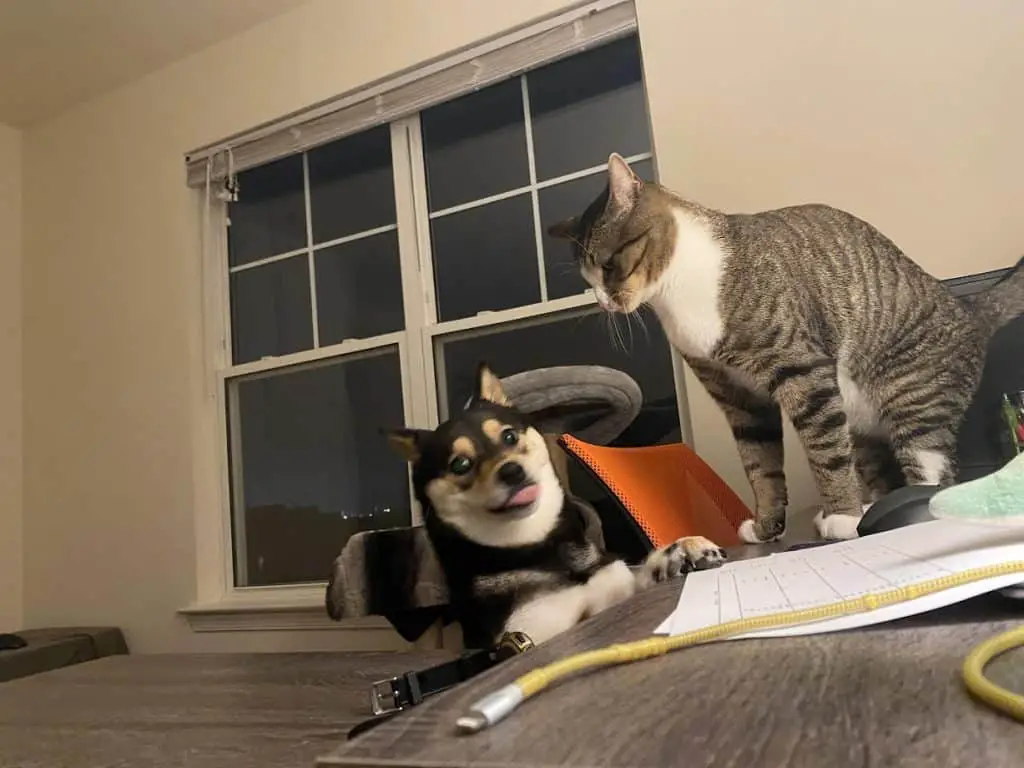
Independence
Shiba Inus are known for their strong sense of independence. They’re not the type to constantly seek your attention or approval. You’ll often find them exploring their surroundings and doing their own thing.
This can be a positive trait, as it means they’re not too demanding of your time. However, it’s important to still establish a strong bond with your Shiba Inu to ensure they listen to you when it’s necessary.
Loyalty and Affection
Despite their independent nature, Shiba Inus are incredibly loyal and can be very affectionate with their family. They may seem aloof and reserved at times, but they have a strong bond with their human companions.
You can expect your Shiba Inu to be protective of you and your home, which makes them excellent watchdogs. Just remember to socialize them well when they’re young to ensure they’re comfortable with new people and situations.
Intelligence
Shiba Inus are quite intelligent and can quickly pick up on new commands and tricks. This can be both a blessing and a curse, as their intelligence sometimes leads to stubbornness. You’ll need to be patient and consistent when training your Shiba Inu.
Keep in mind that they respond better to positive reinforcement rather than punishment. Make training sessions fun and engaging; you’ll find your Shiba Inu eager to learn.
Playfulness
A playful and spirited personality is one of the charming traits of a Shiba Inu. They love to play and have a high energy level, so ensure you’re ready to give them the necessary exercise. Regular walks and play sessions are essential to stimulate your Shiba Inu physically and mentally. You’ll likely find that their joy is contagious, and you’ll enjoy playing with them just as much as they do.
So, embrace your Shiba Inu’s unique temperament and personality, and you’ll have a loyal, intelligent, and entertaining companion by your side.
Behavioral Traits
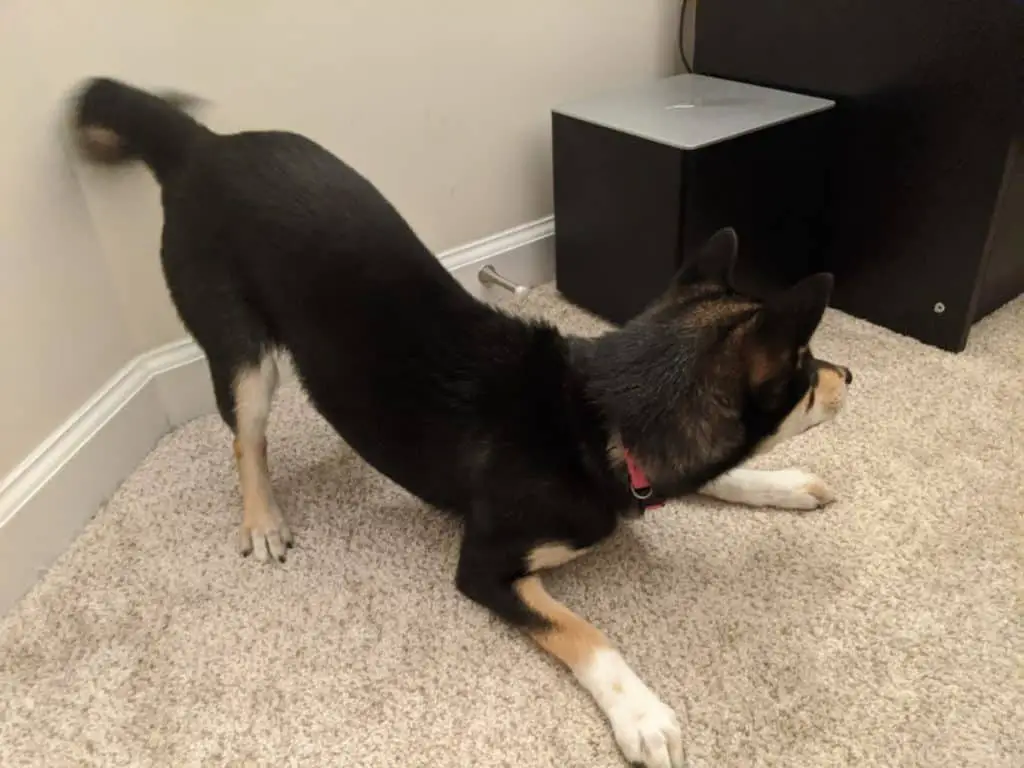
Barking and Noise
Shiba Inus are not known for being excessively noisy dogs. If you’re a Shiba Inu owner, you might notice that your dog doesn’t bark as much as other breeds. However, they do have a unique vocalization called the “Shiba Scream,” which they use to express excitement or distress.
To minimize the amount of noise your Shiba makes, provide them with mental stimulation and exercise, which can help prevent boredom and anxiety-related issues.
Digging and Chewing
Expect your Shiba Inu to be an avid digger and chewer, as these behaviors are natural to them. Your backyard may quickly turn into a dug-up terrain, and your shoes and furniture could become chew toys.
To protect your belongings and keep your Shiba entertained, provide them with appropriate outlets for these behaviors, such as chew toys and designated digging spots in your yard.
Redirecting these instincts and giving them positive reinforcement can prevent destructive habits from forming.
Anxiety and Aggression
While Shiba Inus are generally independent and confident dogs, they can sometimes exhibit signs of anxiety or aggression. These behaviors can stem from a lack of proper socialization, becoming overly attached to their owner, or feeling threatened in certain situations.
To reduce anxiety and aggression in your Shiba Inu, expose them to a variety of people, animals, and environments at a young age. Establishing proper training methods and boundaries will also help your Shiba understand their role in the household and feel more secure.
In cases where anxiety is severe, consulting a professional dog trainer or behaviorist may be beneficial.
Remember, it’s crucial to address these behavioral traits early on to build a healthy and enjoyable relationship with your Shiba Inu. By understanding their tendencies and providing the right outlets, you can ensure a happier and more harmonious life for both you and your furry companion.
Training and Socialization
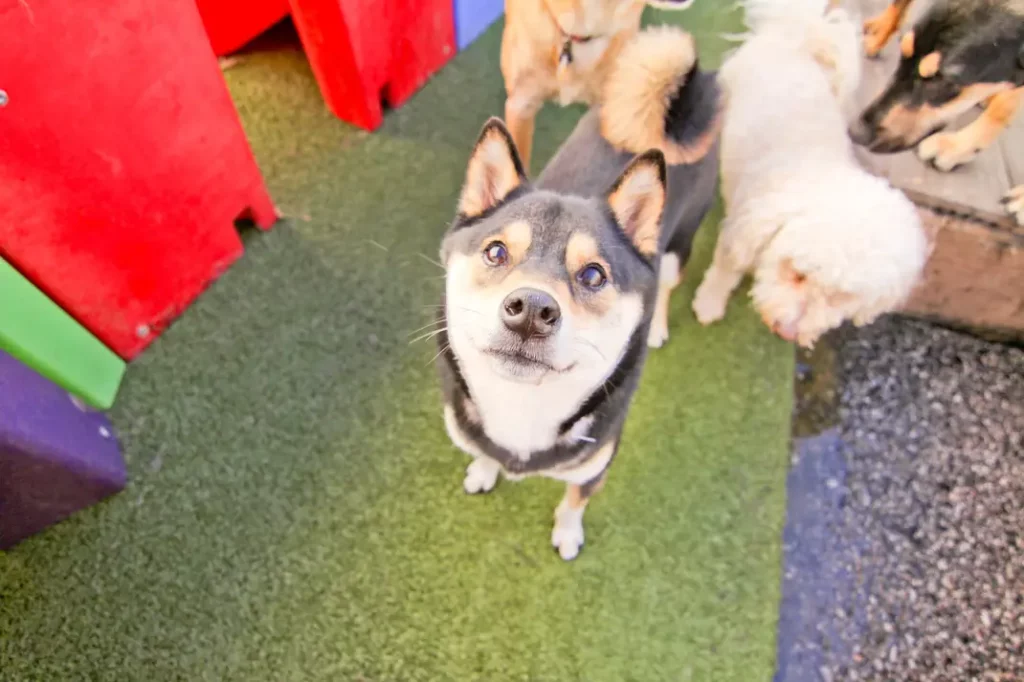
Difficulty in Training
Shiba Inus are known to be stubborn and can be quite difficult to train. However, with patience and consistency, you can help your Shiba Inu overcome these challenges. It’s important to start training and socialization as early as possible; this will set the foundation for a well-behaved and happy dog.
Obedience Training
Obedience training is crucial for Shiba Inus, as they have a strong-willed nature. Consistency is key in training—you must stick to your rules and expectations, even when your Shiba Inu tries to push boundaries.
Consider enrolling your dog in a training class or working with a professional trainer who understands this breed’s unique personality and needs.
- Be patient: Shiba Inus may take longer than other breeds to learn certain behaviors.
- Set rules: Establish boundaries and stick to them consistently.
- Be firm: Use a firm tone of voice when giving commands, but avoid yelling or harsh punishment.
Positive Reinforcement
To keep your Shiba Inu motivated during training, focus on positive reinforcement. This means rewarding good behavior with treats, praise, and playtime. Remember, Shiba Inus responds best to rewards they find valuable. If your dog doesn’t seem interested in a certain treat or toy, try another one until you find what works best.
Here are some tips for successful training with positive reinforcement:
- Reward immediately: Give the reward immediately after your dog performs the desired behavior.
- Use high-value treats: Find a treat that your dog absolutely loves and use it exclusively for training.
- Mix it up: Vary your rewards between treats, praise, and playtime to keep your Shiba Inu engaged and excited about training.
By following these guidelines, you’ll be well on your way to building a strong bond with your Shiba Inu and teaching them the proper behaviors they need to be a happy, well-adjusted pet in your home.
Exercise and Activity
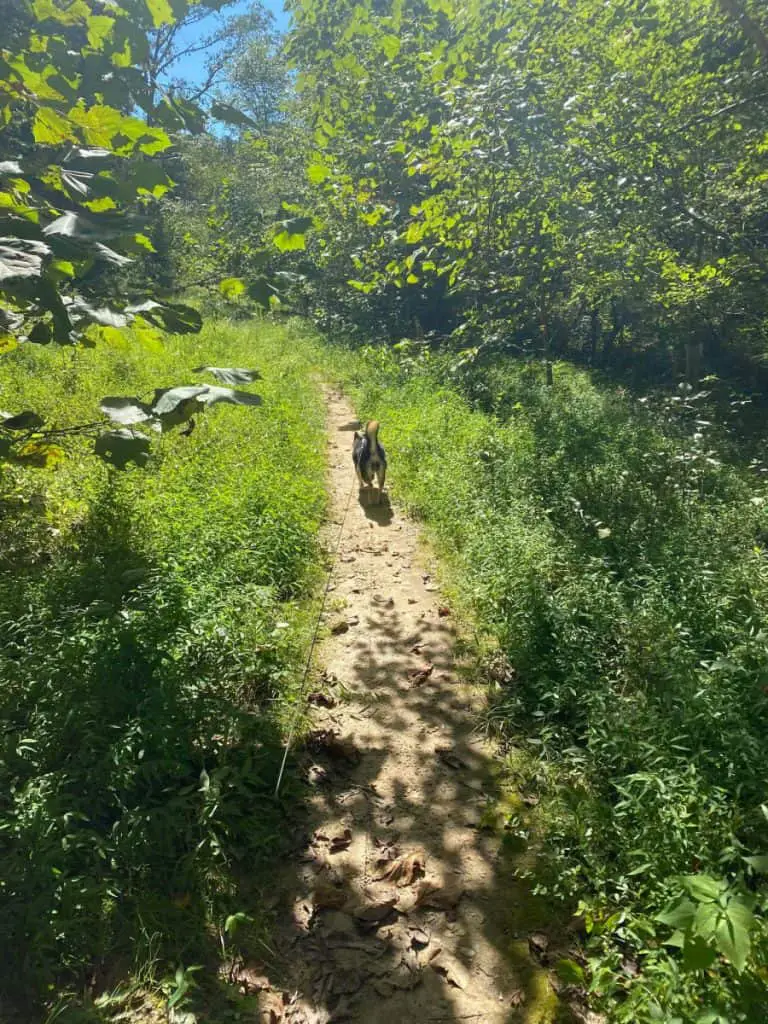
Shiba Inus are known for their high energy levels and need for physical activity. As a breed originally bred for hunting, they enjoy spending time outdoors and engaging in various exercises. In this section, we’ll be discussing the different forms of exercise for your Shiba Inu, both physical and mental.
Physical Exercise
Taking your Shiba Inu for daily walks or jogs is essential to keeping them happy and healthy. They love to be outdoors and explore their surroundings, especially in colder weather which they naturally tolerate well. Aim for at least 30-60 minutes of exercise each day, depending on your dog’s age and energy level. Some activities you can incorporate into your routine are:
- Playing fetch
- Hiking
- Agility training
- Dog sports like flyball or frisbee
Remember to always provide your dog with fresh water and take breaks when necessary, especially in warmer weather.
Mental Stimulation
Just like physical exercise, mental stimulation is important for your Shiba Inu’s well-being. Engaging in activities that challenge their mind can help prevent boredom and unwanted behavior such as excessive barking or destructive chewing. Some ideas for mental stimulation include:
- Puzzle toys or interactive treat dispensers
- Training sessions (teaching new tricks or commands)
- Hide-and-seek games with toys or treats
- Scent work or nose work activities
By including a balance of physical exercise and mental stimulation, you’ll ensure your Shiba Inu stays engaged, happy, and healthy. Remember to tailor the activities to your dog’s individual needs and adjust them as they grow older or as their energy levels change.
Grooming and Care
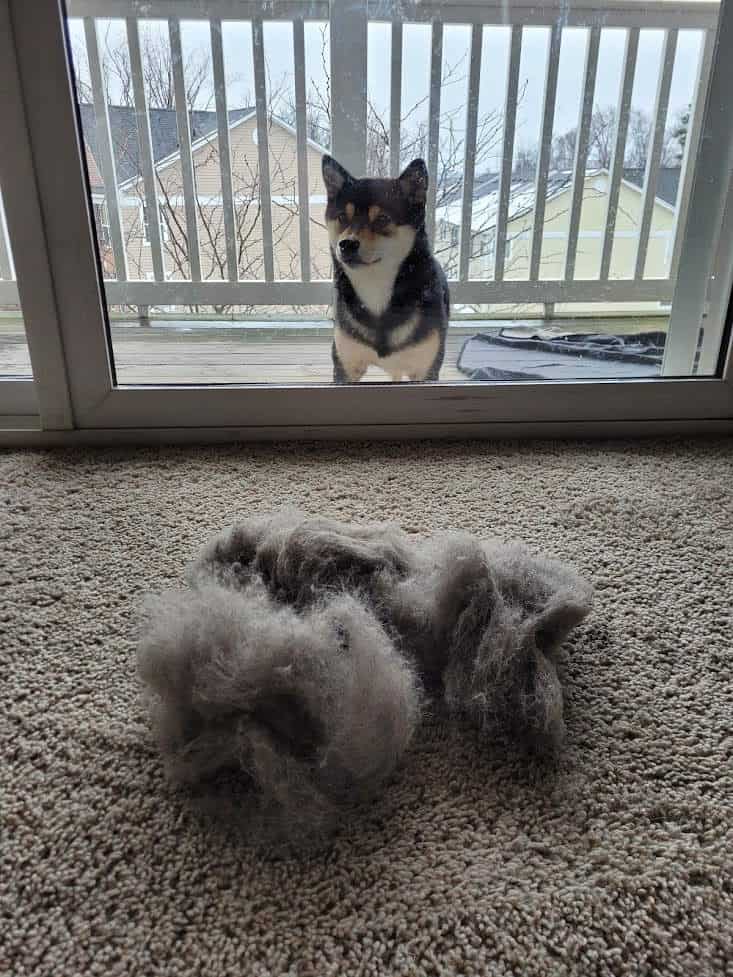
Brushing and Shedding
Caring for your Shiba Inu’s coat is essential to maintain their health and appearance. Regular brushing prevents matting and keeps their fur smooth. You’ll want to use a slicker brush or an undercoat rake to remove dead hairs from their double coat, at least once or twice a week.
Keep in mind that Shibas tend to shed more during seasonal changes, particularly in spring and fall. So, during these periods, you might need to increase the frequency of brushing.
It’s important to be gentle while brushing your Shiba Inu, as their skin can be sensitive. Also, keep an eye out for any signs of patellar luxation (dislocation of the kneecap) as you’re grooming.
Bathing and Cleaning
Shiba Inus are known for their self-grooming habits, but they still require occasional baths to keep them clean and tidy. You should bathe your Shiba Inu every 3 to 4 months, using a mild dog shampoo and warm water.
Avoid over-bathing, as it can strip their coat of its natural oils and make their skin dry or irritated. When bathing your Shiba Inu, pay close attention to areas like their ears and paws. Check for any dirt or debris accumulated in their ears, and make sure to clean their paw pads regularly, especially if they’ve been outdoors for long periods.
Remember to keep grooming and care routines consistent and enjoyable for your Shiba Inu. This will help to strengthen the bond between the two of you and ensure the health and happiness of your cherished companion.
Health Issues and Concerns
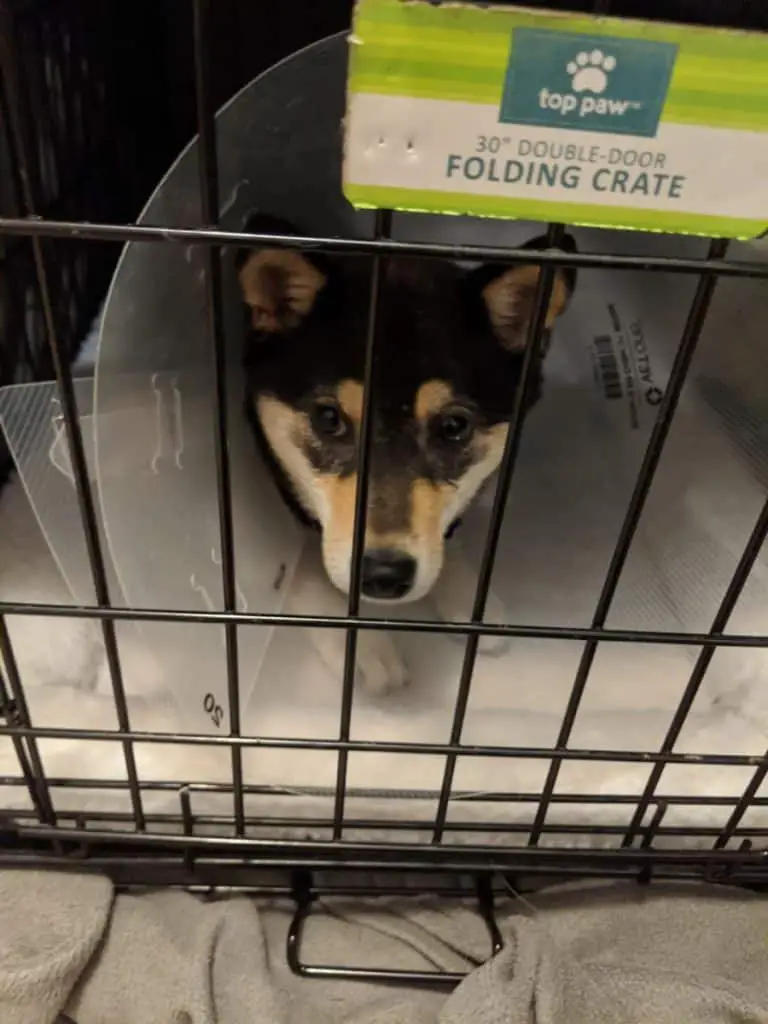
Common Health Problems
Shiba Inus, like any other dog breed, can face some health problems. Here’s a list of the common issues to look out for:
- Allergies: Shiba Inus are known for being allergy-prone. This can result in excessive licking and scratching. Common allergies include food, environmental, and contact. Discuss this with your vet to help identify the cause, who may recommend allergy testing.
- Obesity: Weight management is essential for your Shiba Inu. Obesity can lead to various health issues such as joint problems, diabetes, and heart disease. Monitor their feeding and exercise to maintain a healthy weight.
- Hip Dysplasia: This genetic condition affects their hip joints and can cause arthritis or chronic pain. Screening tests are available to assess the risk of developing hip dysplasia in your Shiba Inu.
Preventive Measures
To minimize potential health issues with your Shiba Inu, follow these preventive measures:
- Feeding: Offer a balanced diet tailored to your dog’s age, weight, and activity level. Consult a vet for dietary suggestions and portion control.
- Exercise: Ensure your Shiba Inu gets regular exercise to maintain muscle mass and prevent obesity. Walking, running, and playing are great activities.
- Regular check-ups: Take your Shiba Inu for regular vet visits to catch potential health issues early and provide any necessary treatments.
- Grooming: Shiba Inus have a double coat that requires regular brushing to minimize shedding and prevent matting. This also helps monitor your dog’s skin for signs of allergies or other issues.
Remember, keeping an eye on your dog’s health and following preventive measures can greatly contribute to their overall well-being.
Shiba Inus in Pop Culture
Internet and Social Media
You might have noticed Shiba Inus showing up on your social media feeds. Their happy faces and cute antics make them perfect for YouTube videos and Instagram posts. Many Shiba Inu owners share their daily adventures through social media, letting you enjoy their fun and sometimes mischievous antics.
Shiba Inus like Mino, from the Sanin region, and Ryosei, from the Shinshu region, have gained significant followings, showcasing their soboku (simple) lifestyles.
In Movies and Television
Their expressive faces and unique personalities make them perfect candidates for entertaining audiences. As you continue watching movies and shows featuring Shiba Inus, it’s hard not to fall in love with these adorable dogs who have become such a powerful symbol of pop culture.
Choosing the Right Shiba Inu
Breeder Selection
When looking for a Shiba Inu, it’s essential to find a reputable breeder. A good breeder will be focused on breeding programs that prioritize health and temperament, and they will likely be affiliated with the American Kennel Club (AKC).
Be sure to ask about their breeding practices and look for signs that they genuinely care for their dogs. You can start by checking out the AKC’s website for a list of Shiba Inu breeders in the United States.
Additionally, attend local dog shows and meet with Shiba Inu owners to get recommendations. Always visit the breeder’s facility, so you can observe the living conditions and the interaction between the pups and their parents.
Rescue and Adoption Options
If you’re open to rescuing a Shiba Inu, consider visiting a local shelter or dog rescue organization. While it may be challenging to find a purebred Shiba Inu, you can still find a loving companion.
Another option is to specifically search for Shiba Inu rescues. They often focus on finding new homes for abandoned or surrendered Shibas. These rescues may even help with temperament assessments and provide necessary training to prepare the dog for its new life as your companion. Remember that adopting a Shiba Inu also makes room for another dog in need.
When choosing a Shiba Inu, keep in mind that they have a distinct character. They’re intelligent and independent like the Akita, but with a smaller and more manageable size. With proper care and attention, your Shiba Inu is sure to be a loyal and spirited companion for years to come.
Summary
Shiba Inus are a dog breed from Japan known for their distinctive appearance and adaptable personality. As a Shiba Inu owner, you will discover their loyal and independent nature. They are often called the “cat” of the dog world because of their grooming habits and discerning affection.
Training your Shiba Inu is essential to ensure a happy life together. They can be stubborn, but they are intelligent learners, so patience and consistency are necessary. Positive reinforcement techniques are the most effective.
It is essential to socialize them from an early age, as they can be wary of strangers and other dogs. When it comes to their physical appearance, Shiba Inus have a compact and well-muscled build.
They have a short, double coat that comes in four primary colors: red, black and tan, cream, and sesame, which helps them tolerate both hot and cold weather. Regular brushing will keep their coat looking its best and reduce shedding.
Shiba Inus are moderately active and enjoy daily walks or playtime. This breed can adapt to a variety of living situations, making them suitable for both urban and rural environments.
However, they are known to be escape artists, so having a secure yard or leash training is crucial. Some common health issues in Shiba Inus include hip dysplasia, eye disorders, and allergies.
Regular vet check-ups will help monitor their health and address any potential problems early on. With proper care, a Shiba Inu has a life expectancy of 12-15 years.
In summary, a Shiba Inu is a charming and loyal companion. Their intelligence and independence can be challenging, but with patience, consistency, and early socialization, they will undoubtedly become a valued member of your family.
Frequently Asked Questions
How Much Does A Shiba Inu Usually Cost?
The cost of a Shiba Inu puppy from a reputable breeder typically ranges between $1,200 and $2,500 and varies based on lineage, location, and demand. It’s important to be wary of lower prices, as they may indicate unethical breeding practices.
What Are The Main Differences Between Shiba Inus And Akitas?
Shiba Inus and Akitas, both originating from Japan, have distinct differences. Shiba Inus are smaller, typically weighing between 17 and 23 pounds, while Akitas can weigh up to 130 pounds. Akitas are recognized for their loyalty and protectiveness, while Shiba Inus have an independent and feline-like personality.
How Much Do Shiba Inus Typically Weigh?
Shiba Inus are a medium-sized dog breed, with males typically weighing between 18 and 24 pounds and females between 15 and 20 pounds. Their compact size makes them suitable for apartment living, but they still need regular exercise and mental stimulation.
Is There A Mini Version Of Shiba Inu?
There isn’t an officially recognized “mini” version of the Shiba Inu breed. However, there are smaller Shiba Inus that fall below the breed standard in size. Keep in mind that intentionally breeding for smaller sizes may result in health issues for the dog due to genetic factors associated with dwarfism.
What Is The Average Height Of A Shiba Inu?
Shiba Inus have a compact build, with males standing between 14 to 17 inches at the shoulder and females between 13 to 16 inches. Their relatively small stature doesn’t stop them from being agile and energetic; Shiba Inus are known for their quick, nimble movements and excellent jumping ability.
Do Shiba Inus Enjoy Being Cuddled?
Shiba Inus may exhibit independent and cat-like behavior, but each dog is unique. Some Shiba Inus may enjoy cuddling and physical contact with their owners. It’s important to be attentive to your Shiba Inu’s body language and respect their boundaries when it comes to physical contact.
